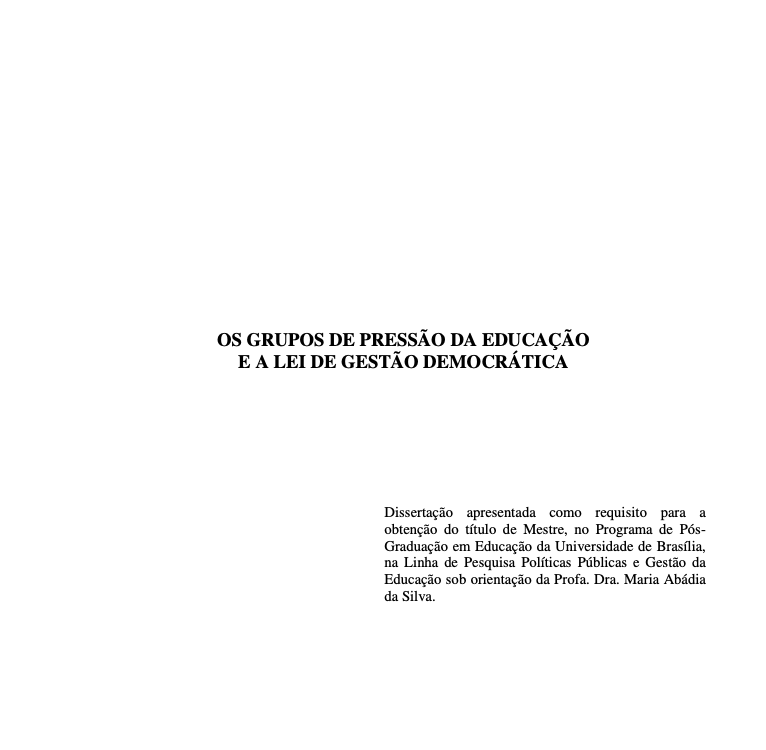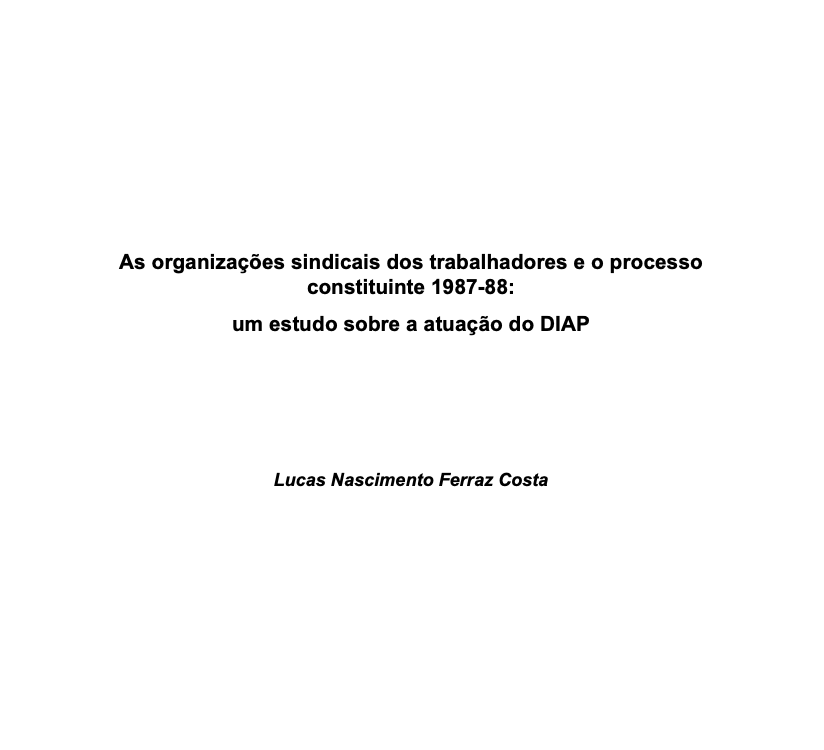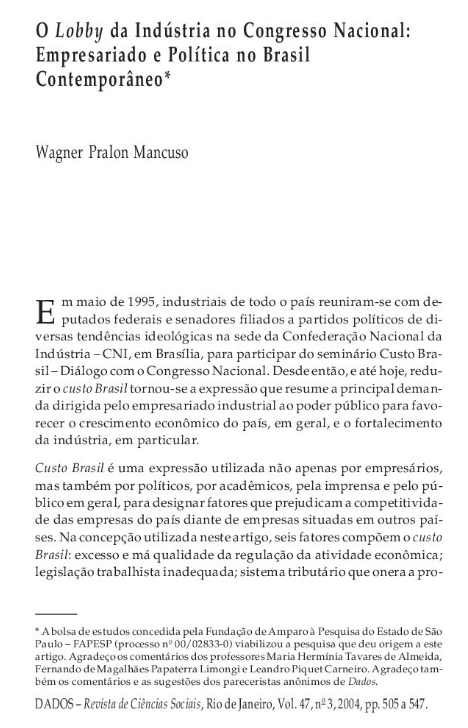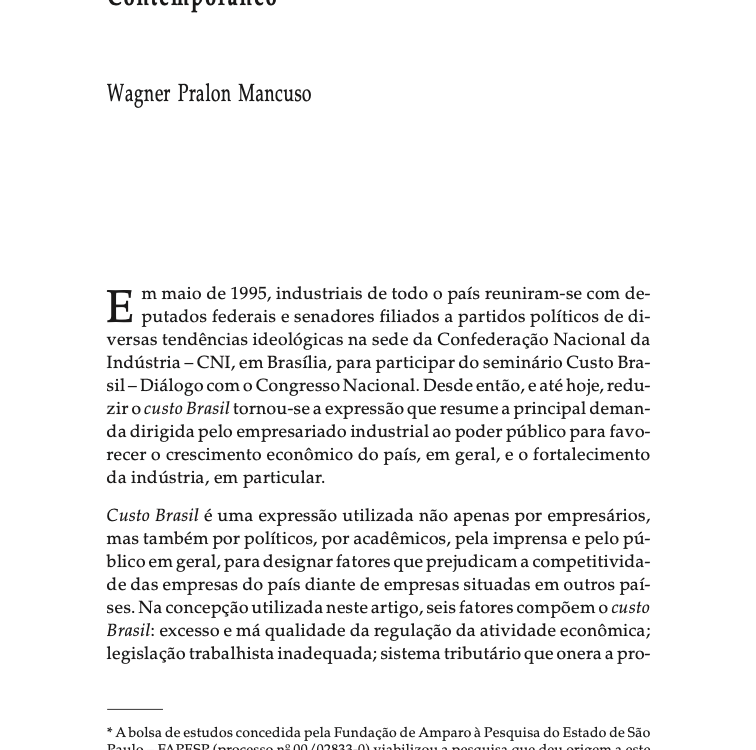Clipping
May 9, 2019
January 16, 2019
in January 16, 2019
January 1, 2019
in January 1, 2019
January 1, 2019
in January 1, 2019
January 1, 2019
in January 1, 2019
September 10, 2018
in September 10, 2018
The objective of this article is to show how Education interest groups are organized to defend antagonistic interests regarding the constitutional regulation of devices that define the allocation of public resources to private education. We support the existence of a theoretical model, based on the concept of centralization, which describes […]
September 10, 2018
in September 10, 2018
The objective of this article is to show how Education interest groups are organized to defend antagonistic interests regarding the constitutional regulation of devices that define the allocation of public resources to private education. We support the existence of a theoretical model, based on the concept of centralization, which describes […]
August 26, 2013
in August 26, 2013
This master’s thesis, as an integral part of the Post-Graduate Program in Education of the University of Brasilia (UnB), follows the Line of Research related to Public Policy and Management in Education. The aim of this paper was to investigate the participation of lobbyists in the legislative process which culminated […]
March 7, 2013
in March 7, 2013
The goal of this dissertation is to analyze the performance of the Department of Inter Parliamentary Advisory (Departamento Intersindical de Assessoria Parlamentar) (DIAP) in the constituent process of 1987-88. The organization was able to unify the consensual demands of the working class, uniting in a single project for the Constituent […]
April 23, 2011
in April 23, 2011
Qualitative research with the purpose of investigating information needs as well as the forms and mechanisms for its procurement by representative institutions in their role of opinion makers. Such needs are related to each entity’s objectives and involve political and managerial aspects. The study deals mainly with the managerial aspects, […]
April 7, 2011
in April 7, 2011
How to make Brazil a less unequal, richer, and more self-confident country? According to the author, entrepreneur Eduardo Mufarej, the answer lies in politics. Mufarej, who was the CEO of the asset management firm Tarpon and the president of Somos Educação, argues that we will only find our path as […]
December 30, 2007
in December 30, 2007
This Thesis approaches the behavior of the interest groups and its interactions with the bureaucracy and the politicians in the scope of the political systems of Brazil and the United States of America, aiming to make a comparative analysis of the respective pressure systems and the activities of lobbies in […]
March 10, 2005
in March 10, 2005
The article shows how reducing external factors affecting competitivity, known as “custo Brasil” (which may include the cost of hiring labor, taxes on exports or the poor state of transportation infrastructure), has become the center of industry’s political agenda. There follows a discussion of the current political situation of industrialists […]
June 7, 2004
in June 7, 2004
The article shows how reducing external factors affecting competitivity, known as “custo Brasil” (which may include the cost of hiring labor, taxes on exports or the poor state of transportation infrastructure), has become the center of industry’s political agenda. There follows a discussion of the current political situation of industrialists […]
February 18, 2004
in February 18, 2004
Mancur Olson’s theory of collective action – especially his concepts of free-riding and exploitation of the great by the small – helps explain how Brazilian constructors’ organizations behaved while the federal legislation on concession of public services was being made. This article contributes to the study of the articulation of […]





